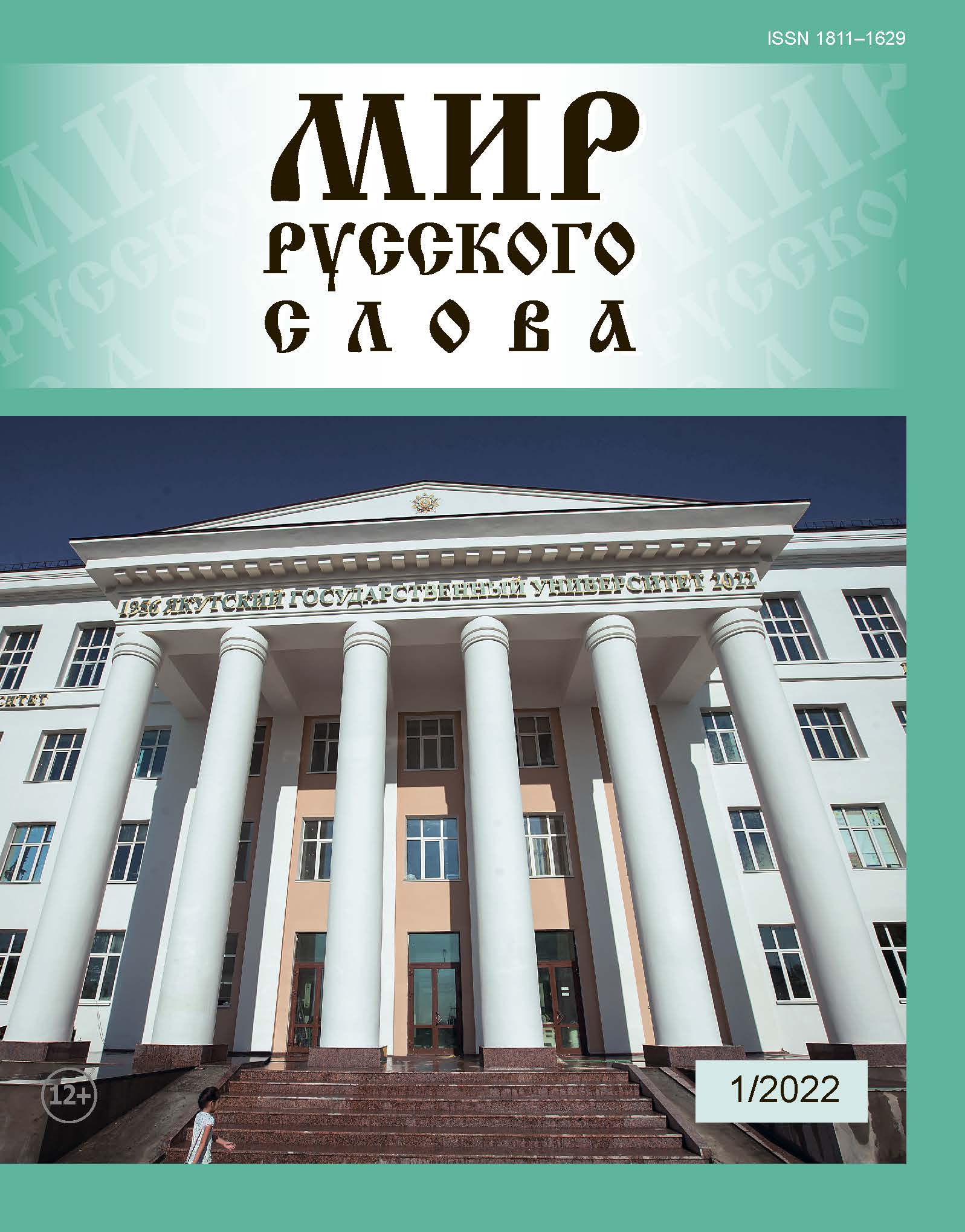Lexical repetition and showing of the case paradigm in a literary text
DOI:
https://doi.org/10.24412/1811-1629-2022-1-4-11Abstract
The article analyzes the repetition of a noun in the same or in different case forms within the same sentence (like in the examples “Po Smolenskoj doroge stolby, stolby, stolby…”; “Sud'ba, sud'by, sud'be, sud'boyu, o sud'be…”). The main source of material is the works of Russian fiction; the database consists of several dozen examples. Against the background of the involuntary repetition of a lexeme that occurs in spontaneous speech, cases of deliberate reduplication are distinguished, due to the importance of the topic or associated with the expression of the “Magn” function (quantitative, qualitative, spatial or temporal amplification). The central object of attention of the article is the use of a complete or partial set of word forms (that is, its paradigm) by a writer or poet. These forms line up in the text in a compositional series, and their sequence corresponds to that adopted in the Russian grammatical tradition. This technique is especially popular in poetry, which indicates its aesthetic value. From a theoretical point of view, these are the facts of intrusion of paradigmatic dimension into a text that is syntagmatic by its nature. The author proposes a psychological and semiotic explanation of this phenomenon. Such a list of word forms indicates the prospects for grammatical development of the text as a dotted line of reference units that can be used in future utterances. The author has shown that the conditional sequence of word forms adopted in grammar is realized in the form of a composing series, regardless of the degree of communicative demand for case forms and the profile of a concrete word.
Keywords:
repetition, function, case, noun, paradigm, literary text
Downloads
Downloads
Published
How to Cite
Issue
Section
License
Articles of "The World of Russian Word" are open access distributed under the terms of the License Agreement with Saint Petersburg State University, which permits to the authors unrestricted distribution and self-archiving free of charge.




